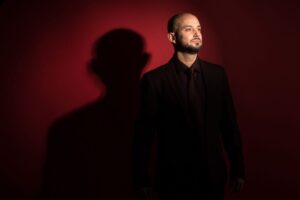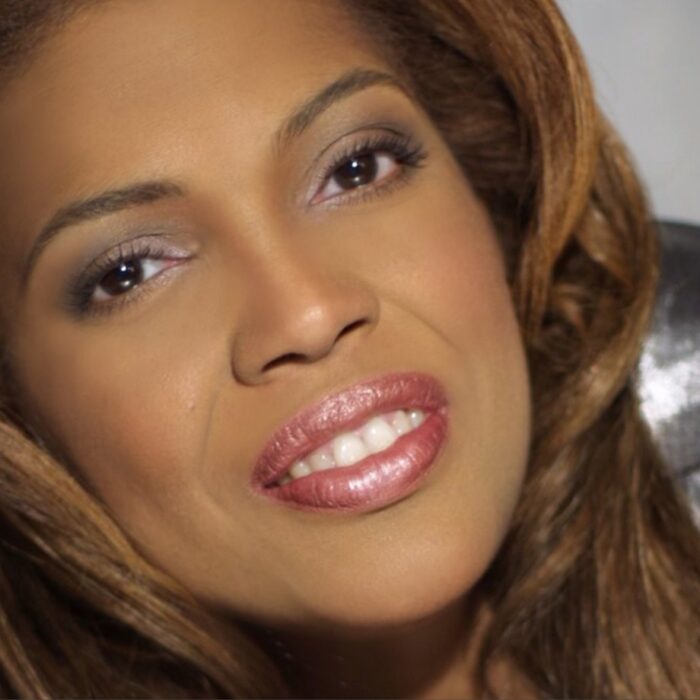
Q & A: Franco Fagioli on Velluti, Bel Canto & Discovering the Works of Paolo Bonfichi, Giuseppe Nicolini, and Francesco Morlacchi
By Francisco SalazarFranco Fagioli is one of the leading virtuoso countertenors in the world, who has taken his own path in the repertoire and redefined the term countertenor.
Having trained in the Italian school, Fagioli has performed works from the Bel Canto repertoire to great acclaim while also performing the baroque repertoire associated with countertenors. He has performed at the major opera houses in the world, including the Teatro Real, Teatro San Carlo, Royal Opera House, Dutch National Opera, and Teatro alla Scala, among others.
In February, he released his latest album, “The Last Castrato: Arias for Velluti,” which explores Giovanni Battista Velluti, the last heir of the great Italian castrati. The album sees Fagioli immersing himself in Velluti’s theatricality to recreate the full extent of his genius and explore repertoire that Velluti performed in his time. He subsequently went on tour with the album, bringing this music to his fans.
OperaWire spoke to Fagioli about the album and discovering the last castrato.
OperaWire: You’re on tour with your latest album, “The Last Castrato: Arias for Velluti.” When did you discover Velluti?
Franco Fagioli: I arrived at Vellutti at the start of my studies as a singer. At that time, there was not much talk about the countertenor or the castrati. They never talked about this story. In my case, I sang in a chorus as a child, and I had a high voice before my voice changed. As a child, I was also chosen to sing “The Magic Flute.” It was a moment that marked me. I was able to sing on the stage, hear professional singers, and perform with the orchestra. This was way before I studied in the conservatory, but I feel like hearing that high voice had a big effect on me.
Later, I studied piano, and then I discovered the countertenor voice. When I started studying with my voice teacher in San Miguel de Tucumán in Argentina, where I was born. I studied with a soprano, and she told me, “I’m a soprano, and I will teach you the technique that I know.” My teacher started to teach me the Italian tradition and the opera tradition. This was not what you would expect of a countertenor nor of the British tradition. I started with the traditions of what a castrato was in the technical aspects, as well as the music that was interpreted. In this case, I interpreted Italian music. In a way, I was a countertenor alla Italiana at least in my education of opera.
After that, I went to the Teatro Colón, where I was accepted into its opera school. When I studied with my teacher, who was a baritone, we worked on technique, but it never had to do with baroque or what was expected of the countertenor. During one lesson, he told me that for the next one, I should bring Arsace’s aria from “Semiramide” by Rossini. And that is when I learned that Rossini had written these pants roles. That was when my love for this music came, and that is a little Vellutti. I started to discover that these roles, which were for castrati, were sometimes sung by men and other times by mezzo-sopranos. When I started to understand this and to learn about pants roles, I understood that depending on my voice, I could sing some of these works. That is when I started to sing a lot of 19th-century music. That is where I started, and that is where I learned about Velluti. Velluti was the last famed castrato, who sang music from the 19th century. It was a period where the Castrati singers were basically nonexistent. I learned about him and the music he sang, and that is where my inspiration for the album came. My love for bel canto was also a reason for my discovery of this great singer. I realized he still sang in this castrato tradition. Velutti also started in opera the same way I did, and did not come from the British style or the baroque tradition.
OW: When you think about the countertenor, you always think of Baroque music. I discovered your career through your Rossini album. Having this Italian tradition in your background, do you think it is a path other countertenors can take?
FF: It all depends on your voice. This is why the term countertenor has to be revised today, because there are singers who call themselves countertenors and others who go by male sopranos. Opera did not invent the fach or voice types. Voice types began before opera and were related to the polyphony of choruses. So I always question what defines a countertenor. In my opinion, what defines it is the school that you come from and the repertoire that you perform. If you learn to sing alla Italiana, there is a series of techniques that you learn to sing a certain way. That will define what kind of voice you have.
OW: How could you define the Italian school?
FF: The Italian school teaches you how to sing with your entire voice. What a mezzo-soprano does, like Marilyn Horne, is amazing not only in her high notes but also in her chest voice. That’s her entire voice. But maybe the English technique of the countertenor does not use that type of voice. I was taught in the Italian style. In my case, I could say that I am a mezzo-soprano because that is my register, and I sing alla Italiana, and I do not sing like a countertenor normally does. I use my entire voice, and sometimes I have sung things for contralto and soprano.
OW: Tell me about the album and how you arrived at some of these unknown composers like Paolo Bonfichi, Giuseppe Nicolini, and Francesco Morlacchi. What was your research process?
FF: The important thing is to ask why these composers are not as well-known. We should ask why Handel is known but not Vinci. That’s an interesting question to ask. But I found these composers when I was reading about the 19th century and, upon finding out, that there was a singer who was still a castrato. I started to look at what operas he sang and what operas were the ones he was known for. I started to find his repertoire and what he loved. I found out his favorite composer was Nicolini, and I saw that he worked with Rossini.
Then I worked with Giovanni Sechi, a muscologist who looked for manuscripts and scores. Then I started to look at them and chose the repertoire for the album. I chose some of Velutti’s favorites, but I also chose those that touched me. That was some of the process. The album is a mix of that process.
OW: What else did you discover about Velluti in the making of this album, and did you leave out arias you really wanted to have on the album?
FF: We talk about the beauty and angelic voices of the castrati and their technique. But through my research, I corroborated the ornamentation of what the Castratis did. Velluti was closing an era of castrati that was based on the divo and ideal figure. The castrati were expected to show expressiveness and a capacity to ornament with freedom. None of these notes were written by the composer because of the way they were ornamented. So we discovered that there was a break between what the composer actually wrote and what they ornamented. We found that melody was changed a piacere by the castrati. I got scores with the composer’s writing and others with what Velluti would do in terms of ornamentation. This was something that would be done and that Velluti polished. After him, the composers started to create a structure. Rossini was one of them, and he started to structure and write the variations. He had them in the score. With Nicolini or Bonfichi, they were not written in. That was the practice of the moment. That was something very interesting to discover.
OW: You are touring this album with the Orchestre de l’Opéra Royal du Château de Versailles and conductor Stefan Plewniak. Tell me about the experience of working with them.
FF: Working with the orchestra is marvelous, and it comes from a great tradition. It was founded by Louis 15 and it belongs to a great history. I’ve worked with them for many years on concerts and operas, so it is always wonderful. With Stefan, it’s also marvelous because he is a great musician and a great violinist. Doing this music requires being daring and being in the moment. You have to be present in this music, and I think the audience has responded very well to it, as it is also bel canto music. I want to transmit that love I have for Bel Canto.


